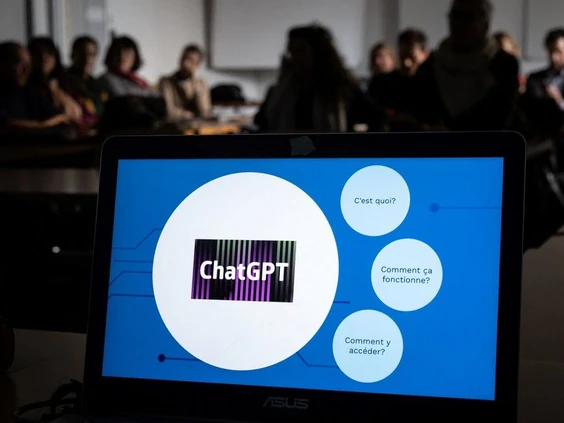It didn’t take long. Artificial intelligence is scooping up jobs around the globe. The examples are everywhere.
This week, the founder of an indian AI company, Dukaan, announced on Twitter, “We had to layoff 90% of our support team because of this AI chatbot.”
The founder, Suumit Shah, went on to describe the move as “necessary” and boasted the company’s response time was reduced from one minute and 44 seconds to “instant.” Shah even confirmed that having a chatbot respond to customer queries drastically reduced his company’s support costs by 85%.
Shah received serious criticism online for his nonchalant response to AI slashing his employee headcount. But he is no outlier. Dukaan is one of countless companies aiming to use AI to reduce employee headcount imminently.
In fact, Goldman Sachs released a recent study that forecasts 300 million jobs will be displaced by AI. That’s just shy of the entire U.S. population.
Cutting long term employment costs may seem like a no-brainer, but the consequences for companies will be long-lived.
On how AI will impact the world of work, Bill Gates wrote this week on his own blog “Gates Notes” that “it’s good for society when productivity goes up” and that “it gives people more time to do other things, at work and at home.” Still, he cautioned that some workers will need support and retraining as we transition to AI-powered workplaces. He called on governments and businesses to manage this “so that workers aren’t left behind.”
Ultimately, Gates blogged that while the risks of AI are real he is “optimistic they can be managed.”
While his sentiments are well intentioned, Gates’ call to action won’t be met with a warm reception by private sector businesses. Growing companies like Dukaan will not, or simply cannot, own the costs of training employees to evolve with AI. Companies will have to be incentivized to do so. Until then, haphazard employee terminations will roll on for short-term gains.
AI focused terminations will lead to at least three things.
Increased liability for employers: Terminations are often costly especially when many companies in the same industry are doing mass layoffs.
Unemployment rates will rise and stay there: Terminated employees will be forced to retrain at their own expense, which will leave more workers out of the workforce longer. This could lead to higher notice periods for these workers and higher payouts from ex-employers.
Lower retention rates for existing employees: Favouring AI over employees will encourage your best talent to yearn for greener pastures. After all, they could be next.
The world of employment is about to turn on its axis again. After the pandemic revolutionized employment with remote work just a few years ago, AI is set to send it into crisis.
It is time for the courts to respond.
Have a workplace issue? Maybe I can help! Email me at sunira@worklylaw.com and your question may be featured in a future column.
The content of this article is general information only and is not legal advice.




